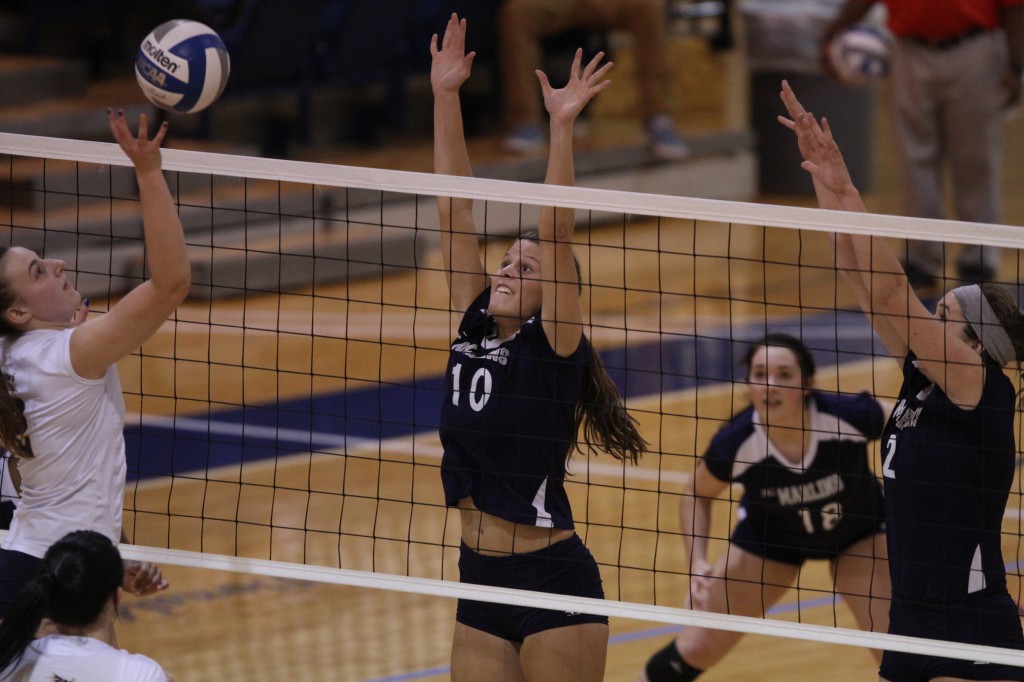The graph displays the total annual enrollment from 2021-22 to 2025-26 projected, including undergraduate, graduate and non-credit programs.
Photo: Office of Institutional Research | Courtesy
The largest incoming class in VWU history, being 700 students, enrolled this fall. Incoming classes have broken the record of being the largest eight times in the past 10 years, according to a VWU website feature story. Of the students newly enrolled this academic year, 400 are traditional and 300 are in Global Campus programs.
The article said VWU “anticipates a total enrollment of more than 5,100 students during the 2025-26 academic year across its on-campus and Global Campus programs,” which includes “1,600 students in traditional programs and 3,500 in Global Campus offerings, including online and talent development programs.”
Heather Campbell, vice president of Enrollment and Student Success, said much of the institution’s expansion has been focused on non-traditional programs. “VWU Online, our partnership with Virginia Beach Economic Development at Town Center, the Advanced Scholars Institute, and the Batten & Black School for International Studies in Tokyo have all grown significantly,” Campbell said, which encompasses some of the Global Campus offerings.
Campbell said that in the past 10 years the only time enrollment did not increase was in 2020-21 and 2021-22, the years most impacted by the COVID-19 pandemic.
Senior Opey Kareem-Ojo, orientation leader of three years, said, “I feel like every year starting from my year, it’s been growing more and more.”
Enrollment has increased from 1,250 full-time equivalent (FTE) in 2015 to 1,675 FTE projected for 2025, according to Campbell. Virginia Wesleyan did not offer graduate programs until 2017. Nontraditional enrollment has increased from 193 in 2015 to 3,249 in 2024-25 and is projected to grow to 3,265 in 2025-26.
“Enrollment at Virginia Wesleyan had been relatively flat, even on a slight decline, from 2010 to 2015,” Campbell said. “That trend shifted dramatically when President Miller arrived in 2015 and introduced a new enrollment strategy that placed emphasis on seven distinct enrollment streams rather than relying primarily on just two.”
This increase contrasts the “enrollment cliff” occurring across the country. The enrollment cliff refers to a decrease in traditional college-aged students, due mainly to a lower birthrate during the 2008 recession. Among several sources, a Dec. 11 Forbes article said this cliff is beginning to take effect in 2025.
A Feb. 9 Forbes article attributed the national enrollment decrease to fewer Americans believing a bachelor’s degree is important and fewer students being able to afford full tuition, causing institutions to rely on discounted rates to attract enrollment.
Dean of the Batten Honors College (BHC) Dr. Travis Malone said the BHC enrolls a fixed number of 160 students with an average 3% acceptance rate, so while the Honors College contributes to enrollment numbers, the program itself is not growing.
The BHC helps with retention because generally for students who have a fixed understanding of their financial aspects, “it makes it easier to commit and stay,” Malone said.
While the Forbes article said international student enrollment has decreased, citing political and social factors, Brooke Novkovic, director of Global Engagement, said, “international enrollment has also increased,” adding that this helps with diversity on campus.
According to the Forbes article, “the survival of many institutions — and the economic vitality of the communities they serve — depends on their ability to innovate and evolve.” Malone said the university has been paying close attention to the enrollment cliff “to try and adapt and diversify our educational offerings.”

Out of the 700 new students enrolled, 400 are full-time undergraduate students.
Photo: VWU | Courtesy
“You wouldn’t only invest all your money in one stock,” Malone said. “You want to have a wide-ranging investment.”
Malone said he thinks everyone should be more aware of universities closing. “We are working night and day to ensure that doesn’t happen here.”
He said while some might think about student numbers as just residents, “that isn’t what makes us a university. A university is the diversity of the programs and the ways that we reach so many different types of learners out there.”
Campbell said the enrollment increases over the years, setting multiple institutional records, “reflect not only the strength of the academic offerings but also the university’s ability to adapt to a changing higher education landscape with innovation and foresight.”
“Our record-setting numbers are not simply statistics; they represent the energy, commitment and talent of the people and programs that make this institution such an attractive destination for students from near and far,” Campbell said.
“State and federal regulators, along with our accreditors, have required the elimination of undersubscribed majors,” which has allowed the university to focus on other resources, Campbell said.
The Prison Education Program, which is in its first year and contributes to enrollment, is anticipated to grow, Campbell said. She said the Sentara College of Health Sciences enrollment, once fully integrated, “will be a major addition in the near future.”
Citing growing resources and campus community, Kareem-Ojo said the university “has been getting a public eye, has been on a lot of people’s radars more often.”
He said the university’s enrollment numbers are representative of a bright future, because “you can’t have a university without the students.”
“As a vice president and as a proud graduate, I could never be more excited about the future,” Campbell said. “The best days for Batten University and for our students are yet to come.”
“With more people coming in, there will be more opportunities to exceed a certain size. There will be more opportunities to hire more professors, more opportunities to get … dorm buildings,” Kareem-Ojo said.
In reference to students, Malone said, “They’re investing in us, and we’re investing in them,” adding that this growth sends the values and principles of the university out to different learners and thus builds reputation.
By: Isaac Fick
ihfick@vwu.edu

